- Home
- Matt Rogers
The Will Slater Series Books 1-3 Page 5
The Will Slater Series Books 1-3 Read online
Page 5
Abu stepped into the room, apprehension and surprise on his face.
Slater froze where he stood, grimacing at his instinctive reaction to being disturbed. He took a moment to ponder exactly how he’d acted. Then he shook his head in disappointment and dropped back down onto the cushion.
‘Sorry, Abu,’ he said. ‘Don’t know what came over me.’
Abu stared at him wordlessly, which did nothing but heighten the discomfort Slater was feeling.
‘You told me at the lookout that you were fine,’ the man said. ‘But I think you were trying to tell yourself that instead.’
Slater began to craft a retort, but stopped himself halfway. There wasn’t always the need for a counter-point. Abu had made his case clear, and Slater decided to let that sit in his mind for a while.
Maybe he really had been affected by his career.
He realised he’d been coasting for as long as he could remember on maximum output. He used to offset the mind-numbing thrills of combat with a healthy cocktail of high-stakes gambling and casual sex. He never slowed down. When the risk-taker’s life had been stripped from him, and he’d been forced to dwell in his thoughts for longer than a few hours…
Maybe he really was damaged.
He shrugged the thought off and wiped a hand across his forehead. It came away saturated.
‘How did the trip to the plantation go?’ he said, attempting to steer the conversation onto more banal matters than the cracks in his psyche.
‘About as well as it could have,’ Abu said, crossing to the kitchen and powering up the stove. ‘I’m about to cook dinner. Would you like some?’
‘Please.’
‘Chicken and rice tonight.’
‘Fine by me.’
‘You’re not a fussy man?’
‘Not at all.’
‘And what did you get up to while I was gone?’
‘I met a young boy. Briefly.’
Abu raised an eyebrow. ‘Did you talk to him?’
‘No. He didn’t speak English.’
Slater shifted uneasily on the cushion. There was a wet patch underneath him where his sweat had dripped into the material while he dozed. ‘Abu, tell me more about these tribes.’
Abu cocked his head, turning away from the ingredients simmering in the frypan on the stove. ‘Why?’
‘I have a weird hunch. Like you do.’
‘About what?’
‘Just tell me more about them.’
‘There is not much to say,’ Abu said.
‘How close are they to Qasam?’
‘The first major tribe lies just a few miles into the mountains. I hope you’re not thinking of going looking for trouble up there. No matter how fearsome you think you are, you will not make it out alive.’
‘Does anyone venture up there?’
Abu shrugged. ‘A handful of people. There are a few remote villages amongst the rocky crags. They don’t have electricity, and there’s barely any running water. It’s rather primitive up there.’
‘The boy went into the mountains,’ Slater said solemnly, staring at the opposite wall, deep in thought.
‘Why would that bother you?’ Abu said.
‘Something about it felt off. Like he didn’t really belong up there. Like he was just heading up in search of adventure.’
Abu shook his head. ‘I believe I may have put too much fear into you, my friend. The tribes are uncivilised and reckless, but they are not monsters. Your young friend will be fine.’
Slater nodded. ‘I don’t know why I’m worrying anyway. I don’t know enough about this place. The culture is complicated.’
‘It sure is.’
‘But you said you thought something was odd up there?’
Abu shrugged. ‘As you said, just a hunch. I have no evidence to prove anything. I simply feel they are withdrawing into their encampments, for good or bad.’
‘Like they’re guarding something?’
Abu smiled. ‘You are full of conspiracy theories, Will.’
‘Just speculating.’
‘There’s nothing wrong with a bit of healthy speculation every now and then,’ Abu said. ‘But in this case I believe it is foolish. I never should have brought it up. It’s more than likely because of the civil war. They don’t want to tread on the toes of an entity that might take offense to their rash behaviour. Or they might be getting paid to lie low while other organisations handle business elsewhere. Either way, it’s none of my business and it’s none of yours either. And it’s a welcome reprieve for the townspeople.’
‘I guess so.’
‘It’s in your blood to go searching for trouble, isn’t it?’ Abu said.
Slater paused. ‘Yes, I think it is.’
‘You hope there’s something going on up there. You’d love nothing more than to dive into the thick of it. Am I right?’
‘You’re right.’
‘Be a vigilante elsewhere, Will. This town doesn’t need it.’
Slater nodded. ‘I think I’m just looking for something to do.’
‘Here’s something to do,’ Abu said, handing over a bowl full to the brim with stringy chicken and jasmine rice.
Slater tucked in, suddenly ravished after realising that he hadn’t eaten anything since he’d set off from Fughmah earlier that morning. Abu had laced the meal with a mouth-watering combination of various herbs and spices. When Slater cleared his bowl and was offered another serving, he graciously accepted.
The food satisfied him enough to shift his consciousness into a groggy stupor. He leant back against the cool mud brick wall and waited for Abu to finish his meal in turn.
They talked long into the evening, their low voices surrounded by the quiet hissing of the paraffin lamps and the distant rumblings of vehicles echoing in through the open window. They spoke of family, and occupation, and stories from their youths. Slater made a point to stay reservedly guarded about his career, opting to let bygones be bygones instead of revealing what he had done during his time in the United States Armed Forces.
It was close to midnight by the time Abu withdrew to his bedroom, leaving Slater to get comfortable on a cluster of floor-level cushions in the living quarters. He dropped his head to the plush material, suddenly intensely comfortable. The night had cooled, lending his pores a break from perspiring.
He drifted into a dreamless sleep, too exhausted to bother reminiscing on his past. He had never been plagued by the deeds he’d carried out in service of his country — not like many others. He was grateful for that. He wondered how long it would take for the nightmares to kick in, how separated he would have to be from his storied career before the whirlwind came back to haunt him.
Until then, he would enjoy life.
And carry on enjoying it for as long as he was physically and mentally able to.
He slept a long eight hours relatively undisturbed.
When the sun speared over the horizon the next morning, he was woken by anguished screams of despair.
9
The horrified wailing shot through him like a bolt of energy.
He reared his head, reacting harshly to the piercing noise, this time providing a justified reaction to being awoken by a strange sound. By the time he made it to his feet, Abu had materialised out of his room, dressed in a light blue futa and a new business shirt.
Ready for the day’s proceedings.
The man had been similarly startled by the screaming. In a mountain town as calm and subdued as Qasam, the noise tore through the laneways like lightning. Slater met Abu’s wide-eyed stare, and together the two made straight for the door.
They exited just as the morning prayers roared to life, blasting from the loudspeakers. Coupled with the yet-unidentified screaming, they melded together into a cacophony of jarring noise.
Slater searched for the source of the commotion.
He saw the woman running up the hill a second before he identified her as the source. She was dressed in a black burqa that covered ever
y morsel of bare skin, apart from her eyes. The garment had been thrown on haphazardly, sheer grief overpowering the traditional customs. Slater noted the additional items she was wearing — black gloves, black socks, and a tall hat made of straw.
Then his gaze floated down below her hat, to the pair of eyes visible through the slit in the face mask.
They were racked with horror.
The woman ran with everything she had, eyes fixed on the top of the slope, ignoring all of her immediate surroundings apart from the path ahead. Her arms flapped wildly on either side of her thin frame, the burqa bouncing up and down in wild fashion. It must have been intensely hot underneath the garment.
Slater watched her approaching with a certain resignation. Despite knowing nothing about her circumstances, his gut told him that he knew exactly why she was behaving erratically. He connected the dots fast enough to grimace, wondering if it really could be what he was thinking.
Then Abu stepped out into the middle of the street and wrapped a wiry arm around the woman’s waist as she flew past, stopping her in her tracks.
She reacted harshly, continuing to scream and slapping at Abu’s chest with both gloved hands. He spoke fast into her ear, never raising his voice, only attempting to calm her down. It was effective enough to make her stop struggling and instead dissolve into giant sobs that wracked her whole body as she let out her unease and worry.
Slater stayed put, loitering on the side of the laneway, refusing to take the grimace off his face.
He knew why she was distraught.
It couldn’t be anything else.
You should have trusted your gut, Will, you dumb fuck.
‘Ask her what’s wrong,’ he said to Abu.
The man nodded and muttered calmly into the woman’s ear, taking care not to heighten his tone and cause any more stress than absolutely necessary. She took a long while to respond, battling against the crippling sadness in her bones. Slater saw her physically cowering as she provided Abu with a string of panicked Arabic.
Her voice cracked as she spoke.
Abu froze where he stood. As he listened to what she was saying realisation spread across his face.
He looked up at Slater, eyes wide.
‘Her boy is missing,’ the man said in English, stretching out every word as if he didn’t want to believe it himself. ‘He said he was going into the mountains as an adventurer yesterday afternoon. She smiled and laughed. She didn’t believe him. He still hasn’t returned, and he’s always home by six in the evening. He’s twelve hours late now…’
Slater’s legs turned weak as the blood drained out of his face.
You should have done something.
Anything.
He couldn’t believe that a wild hunch had been accurate. Something about the boy’s mannerisms had subconsciously told him that he didn’t live in the mountains. He seemed too energised, too excited and invigorated by the prospect of adventure, to be returning home from a day in Qasam. Slater had suspected that the boy lived in the town, but had opted to bite his tongue, out of worry that he would come off as overly suspicious.
Should have done something, he repeated.
The woman spoke, staring hard at Slater.
Abu translated. ‘She’s asking if you saw her boy.’
Slater nodded.
She spoke again.
‘She’s asking if you saw him head into the mountains.’
Slater nodded again.
With her voice wavering, the woman spat a question.
Slater didn’t need Abu to translate to know what she had asked, but the man did so anyway.
‘She’s asking why you didn’t stop him.’
Slater shifted from foot to foot, scolding himself and running through a list of possible scenarios simultaneously. In all likelihood the boy was fine, having stumbled across a remote mountain outpost and been taken in by a couple of caring villagers.
Or Abu’s hunch was right, and the boy had accidentally found something that the tribesmen didn’t want anyone seeing. He could have been quietly eliminated and buried before anyone knew what had happened.
Something deep within him — perhaps past experience — told him that he would never see the boy again.
That brought about a fresh wave of emotions — disgust, sadness, fury. It all balled into a tight gut-punching sensation that wracked Slater’s insides.
He realised that Abu and the woman were waiting for a response.
‘I don’t know,’ he said. ‘I’m sorry.’
He spent far too long watching the woman’s eyes produce fresh tears as the realisation hit her that her young son had really taken off into the mountains. If he hadn’t returned by now, Slater imagined he never would. He found himself encapsulated by her grief, and it began to fuel him in a way that he couldn’t quite put his finger on.
But he couldn’t deny his anger.
A steely aura fell over him. His mouth became a hard line. He wrapped up the emotions he was feeling into a tight package and balled it down, suppressing the tension for now. Determination seared through him.
He started to form a plan — to go and find the tribesmen responsible for what had happened. He tuned out his surroundings, drawing into the inner workings of his own mind.
To his own detriment.
He didn’t hear the pick-up truck’s engine until it was too late.
With his back to the slope, he had no clear view of oncoming traffic.
The roar of the approaching vehicle filled his eardrums at the last second.
He turned to peer down the steep road, expecting to see a vehicle screeching to a halt and predicting a verbal torrent of abuse from its occupants.
He saw neither of those two events.
Instead he saw the broad hood of a Toyota Land Cruiser filling his vision, only a foot away from impacting his torso.
The car had no intention of slowing down.
Slater leapt off his feet at the last second, which created enough momentum to topple him over the hood instead of being knocked underneath it when the Toyota slammed into his legs.
He sprawled across the hood, slammed against the windscreen, and dropped off the side of the pick-up truck onto the hot pavement below, landing in a pathetic heap on the ground.
10
It took a moment for the incident to register in his mind.
He’d reacted instinctively, saving himself from getting crushed underneath the Toyota’s giant off-road wheels in the space of a half-second. It meant that he sprawled to the pavement with disorientation clouding his senses. It took him a beat to stare at the Toyota in an adrenalin-induced haze and recognise one of the occupants.
One of the checkpoint guards from the previous day.
The man sat in the passenger seat, sporting a grievous purple welt on the back of his neck from where Slater had struck him with the butt of the Kalashnikov.
Slater hadn’t seen the driver before. The unknown man had both hands on the wheel, with his face twisted into a contorted scowl of concentration. He was applying the brakes after realising that he hadn’t incapacitated Slater with the initial ram.
The checkpoint guard was in the process of twisting in his seat, trying to keep an eye on Slater while the driver slowed the Land Cruiser to a halt in the middle of the street. The tyres squealed and thick grey smoke wafted into the air. When the Toyota finally ground to a stop, Slater saw Abu and the crying woman standing frozen only inches from the hood of the vehicle.
He saw red.
In the confusion, he wasn’t sure whether the newcomers were armed. He realised that it would do him well to take advantage of the rapidly changing situation. The driver and passenger would have expected to hit him and incapacitate him with the first charge. They had failed to do so, and were clearly attempting to improvise.
Slater lived and breathed improvisation.
He scrambled to his feet and sprinted straight up to the driver’s door. The guy still had both hands clasped on the wheel —
the Land Cruiser hadn’t fully come to a stop just yet, still in the process of squealing to a halt. Slater shot a hand through the open window and reached blindly into the space between the driver and the door.
If his hunch proved correct, the man would have stowed his weapon in the door’s compartment while he concentrated on driving.
Slater wrapped his fingers around a smooth metal object and came out with an IWI Jericho 941 semi-automatic pistol, manufactured in Israel. He had the barrel jammed into the soft centre of the driver’s exposed throat before the checkpoint guard in the passenger seat had a chance to react.
A Mexican standoff ensued.
Now that Slater had time to get his bearings, he acknowledged the fact that the checkpoint guard was armed. The man wielded the same Kalashnikov AK-47 that he’d held at the checkpoint, but in the cramped cabin of the Toyota it proved a cumbersome weapon to manoeuvre. It had taken the guy a couple of seconds too long to get an aim on Slater.
By the time he had the Kalashnikov aimed at Slater’s temple, Slater had the driver at gunpoint.
Silence descended over the laneway.
It proved a strange sight — a Toyota Land Cruiser parked diagonally in the centre of the dusty street, smoke wafting off the tyres, two men frozen in the cabin and another man standing outside the vehicle with his arm holding a gun to the driver’s throat.
Nobody said a word.
Slater noted the unstable grip the checkpoint guard had on the AK-47. His palms were slick with sweat, and his wrists shook with fear.
Out of the corner of his eye, Slater noticed Abu and the woman still standing in front of the vehicle. Neither of them had moved a muscle.
‘Abu,’ Slater said quietly. ‘Come here.’
Abu skirted around the hood of the Toyota and drew to a halt alongside Slater. Both of them peered through the driver’s window, across the driver, to the checkpoint guard in the passenger’s seat.
‘Am I correct in assuming that this man here,’ Slater said, gesturing to the driver, ‘is a mercenary?’

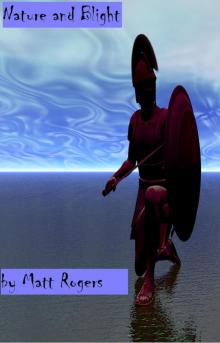 Nature and Blight
Nature and Blight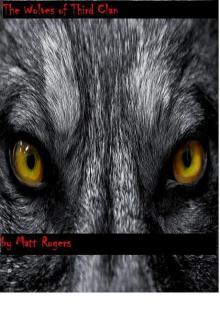 The Wolves of Third Clan
The Wolves of Third Clan Ghosts
Ghosts Bear
Bear The Will Slater Series Books 1-3
The Will Slater Series Books 1-3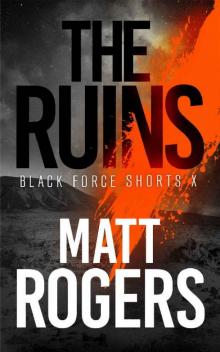 The Ruins
The Ruins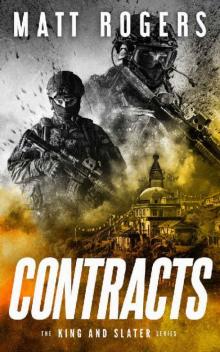 Contracts
Contracts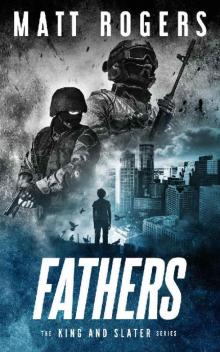 Fathers
Fathers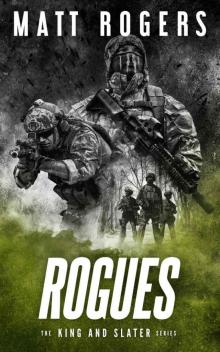 Rogues: A King & Slater Thriller
Rogues: A King & Slater Thriller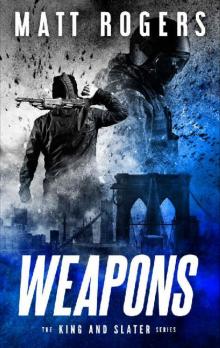 Weapons
Weapons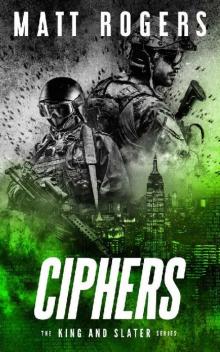 Ciphers
Ciphers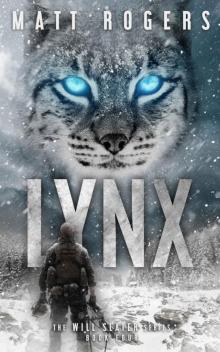 Lynx
Lynx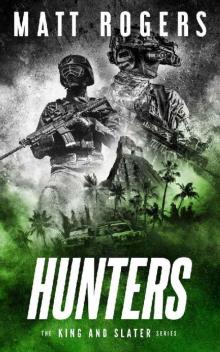 Hunters
Hunters Of Superior Design
Of Superior Design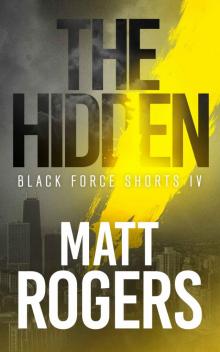 The Hidden: A Black Force Thriller (Black Force Shorts Book 4)
The Hidden: A Black Force Thriller (Black Force Shorts Book 4) Blood Money
Blood Money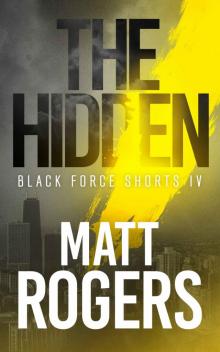 The Hidden_A Black Force Thriller
The Hidden_A Black Force Thriller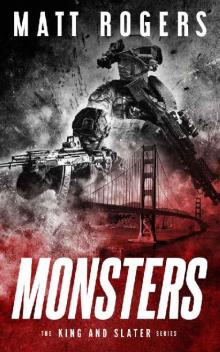 Monsters
Monsters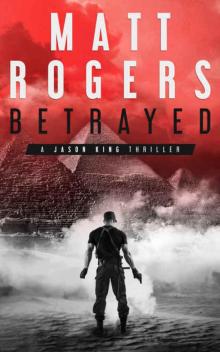 Betrayed: A Jason King Thriller (Jason King Series Book 4)
Betrayed: A Jason King Thriller (Jason King Series Book 4)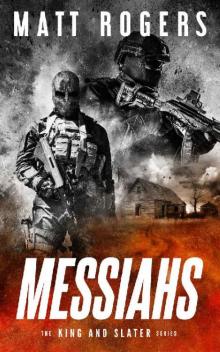 Messiahs
Messiahs The Wicked_A Black Force Thriller
The Wicked_A Black Force Thriller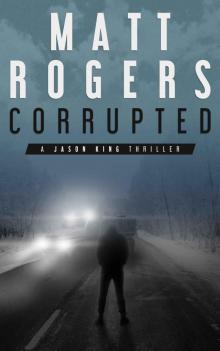 Corrupted: A Jason King Thriller (Jason King Series Book 5)
Corrupted: A Jason King Thriller (Jason King Series Book 5)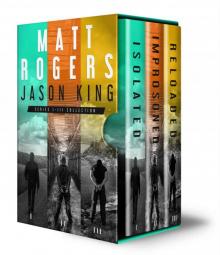 The Jason King Series: Books 1-3
The Jason King Series: Books 1-3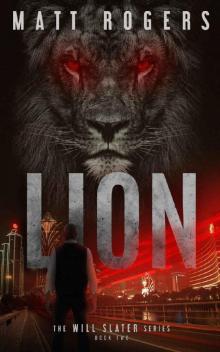 Lion
Lion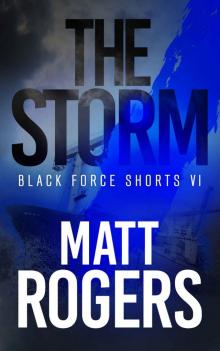 The Storm: A Black Force Thriller (Black Force Shorts Book 6)
The Storm: A Black Force Thriller (Black Force Shorts Book 6)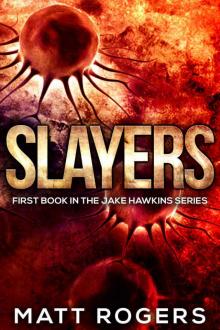 Slayers (Jake Hawkins Book 1)
Slayers (Jake Hawkins Book 1)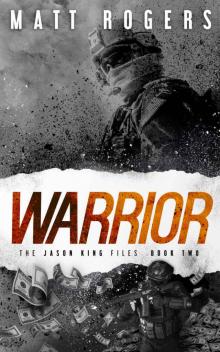 Warrior: A Jason King Thriller (The Jason King Files Book 2)
Warrior: A Jason King Thriller (The Jason King Files Book 2)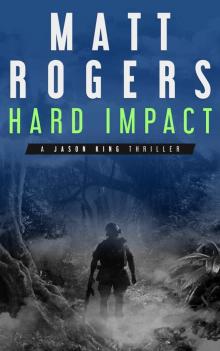 Hard Impact: A Jason King Operation (Jason King Series Book 0)
Hard Impact: A Jason King Operation (Jason King Series Book 0) The Wicked: A Black Force Thriller (Black Force Shorts Book 7)
The Wicked: A Black Force Thriller (Black Force Shorts Book 7)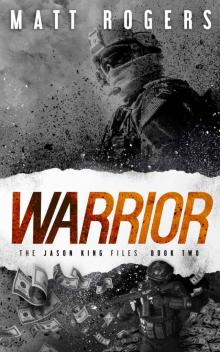 Warrior_A Jason King Thriller
Warrior_A Jason King Thriller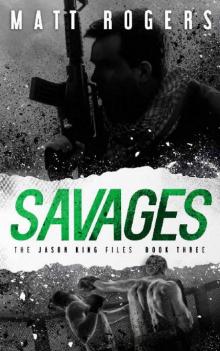 Savages: A Jason King Thriller (The Jason King Files Book 3)
Savages: A Jason King Thriller (The Jason King Files Book 3)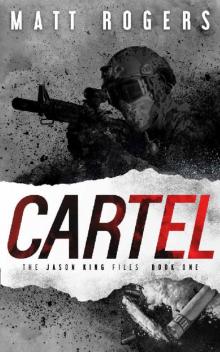 Cartel: A Jason King Thriller (The Jason King Files Book 1)
Cartel: A Jason King Thriller (The Jason King Files Book 1)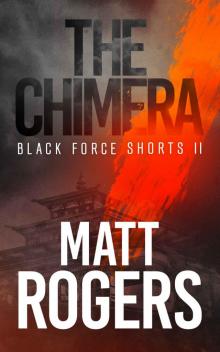 The Chimera_A Black Force Thriller
The Chimera_A Black Force Thriller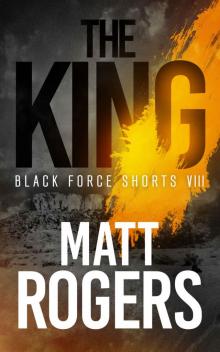 The King: A Black Force Thriller (Black Force Shorts Book 8)
The King: A Black Force Thriller (Black Force Shorts Book 8)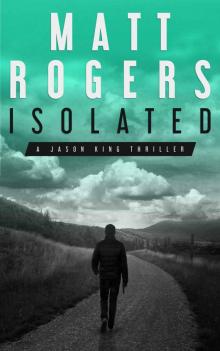 Isolated: A Jason King Thriller (Jason King Series Book 1)
Isolated: A Jason King Thriller (Jason King Series Book 1) The Victor: A Black Force Thriller (Black Force Shorts Book 1)
The Victor: A Black Force Thriller (Black Force Shorts Book 1)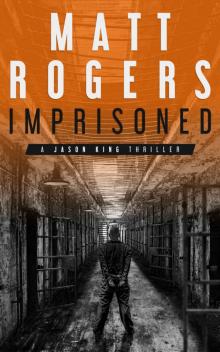 Imprisoned: A Jason King Thriller (Jason King Series Book 2)
Imprisoned: A Jason King Thriller (Jason King Series Book 2)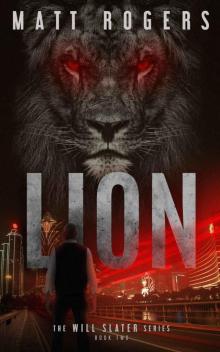 Lion: A Will Slater Thriller (Will Slater Series Book 2)
Lion: A Will Slater Thriller (Will Slater Series Book 2)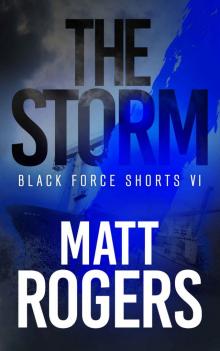 The Storm_A Black Force Thriller
The Storm_A Black Force Thriller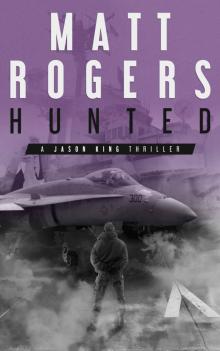 Hunted: A Jason King Thriller (Jason King Series Book 6)
Hunted: A Jason King Thriller (Jason King Series Book 6)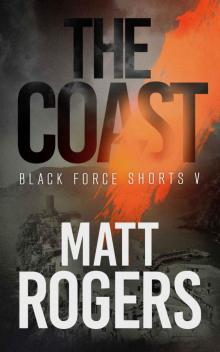 The Coast: A Black Force Thriller (Black Force Shorts Book 5)
The Coast: A Black Force Thriller (Black Force Shorts Book 5)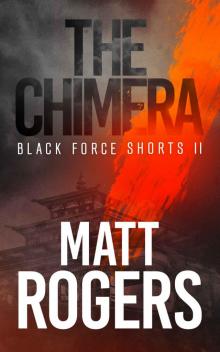 The Chimera: A Black Force Thriller (Black Force Shorts Book 2)
The Chimera: A Black Force Thriller (Black Force Shorts Book 2)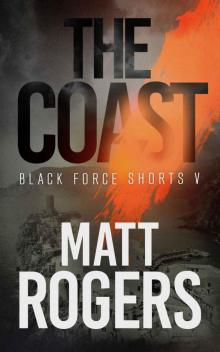 The Coast_A Black Force Thriller
The Coast_A Black Force Thriller